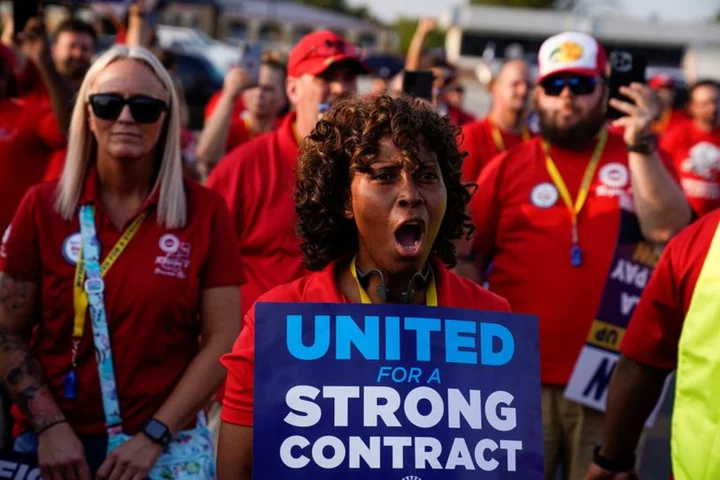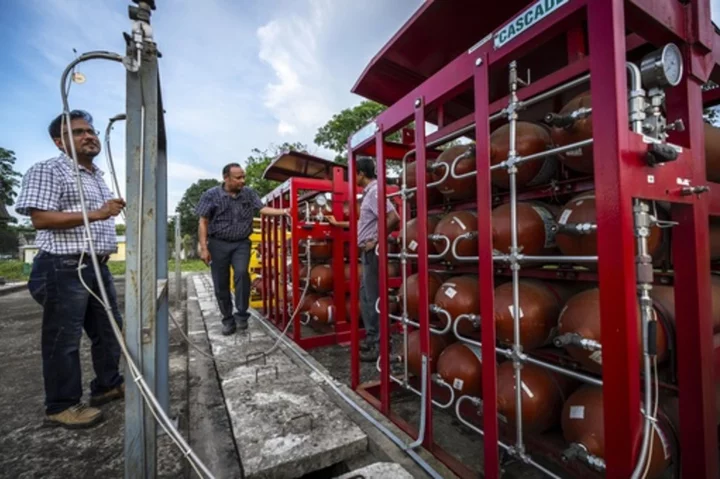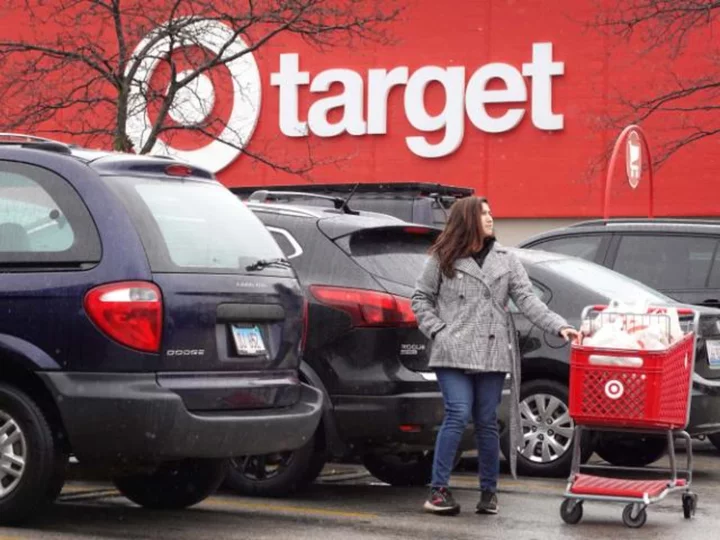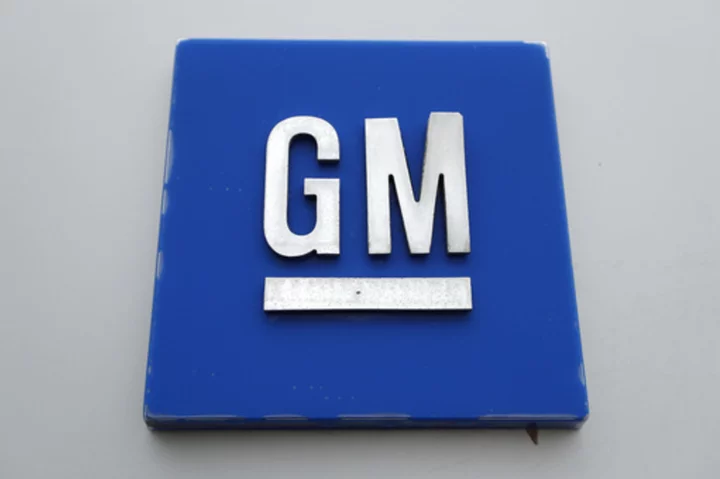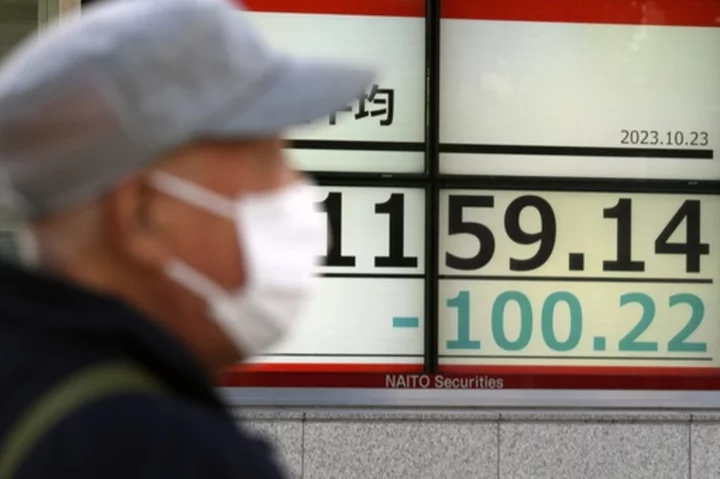By David Shepardson and Joseph White
DETROIT (Reuters) -The United Auto Workers will expand its strikes against Detroit automakers General Motors and Chrysler parent Stellantis, but has made real progress in talks with Ford Motor, the union said on Friday.
The autoworkers' union will begin strikes against 38 parts distribution centers across the United States at GM and Stellantis at noon Friday, extending its unprecedented, simultaneous strikes that began with one assembly plant each of the Detroit Three. The additional facilities will add about 5,600 workers to the 12,700 already on strike.
UAW President Shawn Fain, in a Facebook live event, said by targeting distribution centers, this turns the strike into a nationwide event.
Fain said the decision would impact consumers trying to get repair parts. "The way to fix the frustrating customer experience is for the companies to end price gouging," Fain said.
"We will be everywhere from California to Massachusetts, from Oregon to Florida," he added. Fain said earlier this week further strikes could be avoided if companies showed "significant progress" toward an agreement.
"Stellantis and GM in particular are going to need some serious pushing," Fain said Friday. He said they have more work to do at Ford, but "we do want to recognize that Ford is showing they're serious about reaching a deal."
Fain also threatened more action at Stellantis's critical parts plants in his hometown of Kokomo, Indiana, calling on those facilities to "stand ready." Stellantis has four factories in Kokomo that make engines and transmissions used widely across the automaker's product line.
Stellantis has said it wants to be able to consolidate and close some of its parts distribution centers.
Fain invited President Joe Biden to come to the picket lines -- along with other politicians, friends and family. The president has been vocal in his support for the union's demands for better pay and benefits.
Former President Donald Trump, who is seeking a new term, will be in Michigan next week to address autoworkers about the strike.
Fain said Ford had improved its contract offer, including boosting profit sharing and agreeing to let workers strike over plant closures but said the union still has "serious issues" with Ford.
Ford also agreed to convert temporary employees with at least 90 days employment to full-time upon ratification of a deal, he said.
Ford shares gained 3.7% while GM shares were up 0.8%, paring earlier gains following the news. GM did not immediately comment. Stellantis said the company is continuing to meet with the union.
Ford said it is continuing to negotiate, adding that "we have more work ahead of us before we can reach an agreement."
The wider strike will not immediately include plants that build highly profitable pickup trucks like GM's Chevy Silverado and Stellantis' Ram.
About 12,700 workers walked out at plants in Missouri, Michigan and Ohio on Sept 15. Those plants produce the Ford Bronco, Jeep Wrangler and Chevrolet Colorado, alongside other popular models.
Wedbush Analyst Daniel Ives said this marks a divergence in the talks with the automakers.
"This strike’s going to get a lot nastier," he said. "The current deal is a torpedo to the business models of the Detroit 3. To take a deal just to avoid a strike and get it done is great for the next 24 hours but a nightmare for the next 30 years."
"This is like union 101 in terms of divide and conquer, and put more pressure on GM and Stellantis," Ives added. "But devil’s in the details ... I think GM and Stellantis are going to fight this."
PROLONGED ACTION
The standoff is fueling worries about prolonged industrial action that could disrupt production and ripple through the supply chain and dent U.S. economic growth. A Reuters/Ipsos poll released on Thursday showed significant support by Americans for the striking auto workers.
The strike has become a focus of attention for Biden and Republican candidates who want to replace him. An invitation by the UAW to Biden would be a notable overture by the union to the White House, which it has held at arm's length until now.
The White House declined to comment Friday.
White House spokeswoman Karine Jean-Pierre was asked Thursday if Biden plans to visit a picket line. She declined to answer but said "all parties continuing to be at the negotiating table is a positive. It is important that we result in a win-win agreement."
Fain has said the Detroit automakers have not shared enough of their profits with workers while enriching executives and investors.
GM President Mark Reuss this week rejected those claims, saying the current offer to the union would be generous and the company's profits have been reinvested in the transition to electric vehicles.
The automakers have proposed 20% raises over 4-1/2 years, while the UAW is seeking 40%.
The union also wants to end a tiered wage structure that it says has created a large gap between newer and older employees.
S&P said the strikes, which began on Sept. 15, were highly likely to last several weeks, potentially cutting third-quarter U.S. gross domestic product by 0.4% and causing "upheaval" across global automotive supply chains.
GM, Ford and Stellantis have said they are making contingency plans for further U.S. work stoppages.
Ford reached a last-minute deal to avoid a walkout at its Canadian operations late on Tuesday. Unifor, which represents about 5,600 Canadian auto workers, had been threatening to go on strike at all three Ford plants in the country.
(Reporting by David Shepardson in Washington and Joseph White in DetroitAdditional reporting by Ben Klayman in Detroit and Peter Henderson in San Francisco and Jeff Mason in Washington Editing by Peter Henderson, Matthew Lewis and Nick Zieminski)

